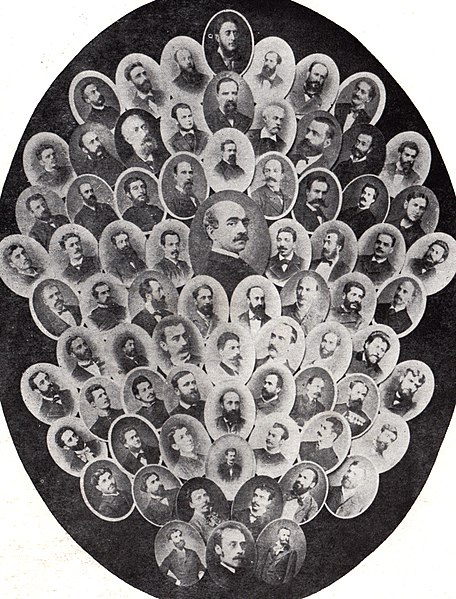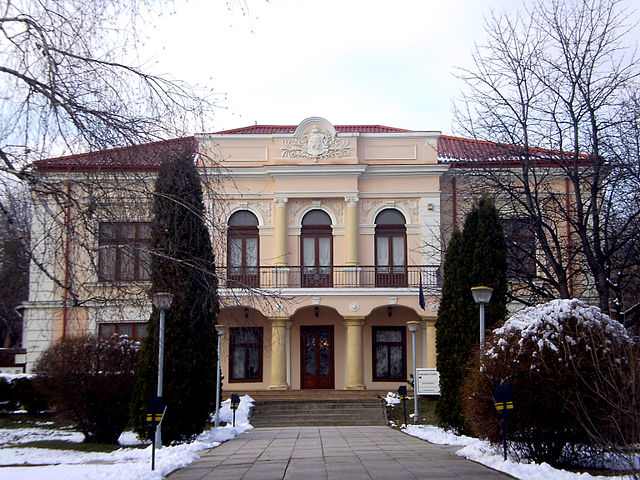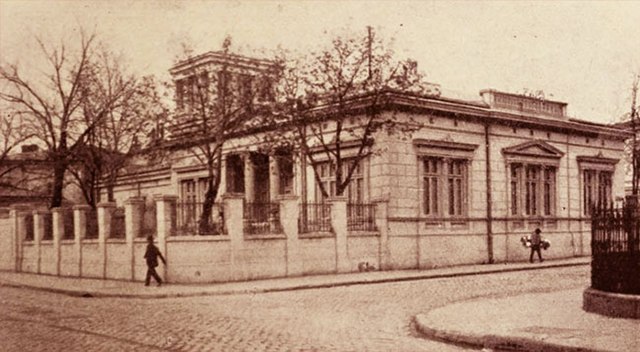Petre P. Carp was a Moldavian, later Romanian statesman, political scientist and culture critic, one of the major representatives of Romanian liberal conservatism, and twice the country's Prime Minister. His youth was intertwined with the activity of Junimea club, which he co-founded with critic Titu Maiorescu as a literary society, and then helped transform it into a political club. He left behind a budding career as Junimea's polemicist and cultural journalist, joining the state bureaucracy of the United Principalities, the Romanian diplomatic corps, and ultimately electoral politics. A speaker for aristocratic sentiment and the Romanian gentry, Carp helped create the Conservative Party from the various "White" conservative clubs (1880), but also led a Junimist dissident wing against the Conservative mainstream leaders Lascăr Catargiu and Gheorghe Grigore Cantacuzino. He was a contributor to the Junimea platform Convorbiri Literare, and founder of the newspapers Térra (1868) and Moldova (1915).

P. P. Carp (pre-1900 photograph)
The building once housing Junimea's printing press
Photograph of Carp, ca. 1870
A Constantin Jiquidi cartoon, poking fun at Carp's Era Nouă government (November 1888). In the "old era", peasants feed their masters; in Carp's "new era", the roles are politely alternated
Junimea was a Romanian literary society founded in Iași in 1863, through the initiative of several foreign-educated personalities led by Titu Maiorescu, Petre P. Carp, Vasile Pogor, Theodor Rosetti and Iacob Negruzzi. The foremost personality and mentor of the society was Maiorescu, who, through the means of scientific papers and essays, helped establish the basis of the modern Romanian culture. Junimea was the most influential intellectual and political association from Romania in the 19th century.
Collective portrait of Junimea, 1883
Pogor House in Iași, the headquarters of Junimea; nowadays, The Romanian Literature Museum
Titu Maiorescu House on Strada Mercur (known today as Strada Arthur Verona), where the meetings of Junimea were held, Bucharest, c.1870, unknown architect. The house was demolished at the end of the 1950s or in the early 1960s, and now in that place is a playground behind the Eva apartment building







